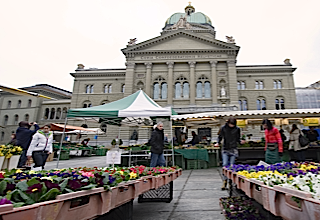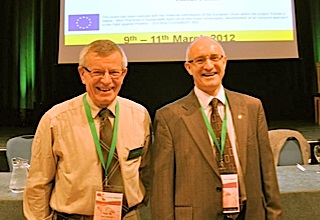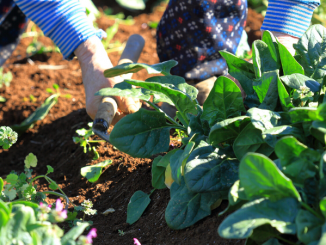
The Swiss Council of States has dodged calling for a clear and permanent halt to discussions of duty-free trading in agricultural products with the EU (see earlier story). Although negotiations are to be put on hold, the Association Suisse pour un Secteur Agroalimentaire Fort (ASSAF-Suisse) warns that a different tactic is likely to be adopted to achieve the same end.
The Swiss upper house gave the Council of State until September to present an account of the farm trade negotiations so far held with the EU. Prior to the session, the economic commission in charge of the EU bilateral talks urged the Federal Council “…to find alternative solutions with a view to progressively opening up the food production market in a controlled way.”
In its March 7 session, the Council of States turned down a motion by Rudolf Joder to break off further bilateral food trade talks permanently. It also rejected another motion from Laurent Favre to exclude both agriculture and tobacco from trade talks. In so doing, the Council of States has held the door open for the becalmed Doha round of the WTO talks, by not upholding the Federal Council’s decision last year to drop bilateral agricultural talks with the EU. It was a combination of fearing how the EU might have reacted and not wanting to be seen to interfere in the Federal Council’s area of responsibility, even though the latter had already disengaged from the controversial process.
“It is regrettable to see our councillors of the states carry out cosmetic surgery, when radical action was necessary to amputate a process that will cost more than 150,000 jobs in the Swiss food and farming sector,” warns ASSAF-Suisse. “The EU has other more important problems, such as sorting out the Euro crisis, that it is not going to be perturbed by a clear Swiss decision over the food and farming agenda. On the contrary, dropping this topic would have probably allowed progress to be made on other areas,” a reference to existing talks on energy and electricity on hold while food and farming trade talks rumbled on.
According to ASSAF-Suisse, the EU is not making any firm demands for an agriculture agreement. Rather, the association argues, the EU reckons that existing agreements and the recent mutual recognition of EU and Swiss appellations were a testament to a healthy functioning of relations.
“Halting a mired project would also be a wise decision when faced with the limited resources of the confederation. In fact, persisting with this line is to waste the administration’s resources for an uncertain outcome.” ASSAF-Suisse argues that opening Swiss borders completely to EU imports goes against the principle of food sovereignty that is being demanded by a wider public than just small farmers. The association is preparing for a fresh political initiative to restore a stable outlook for Swiss food production.





